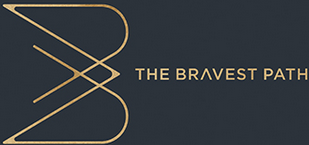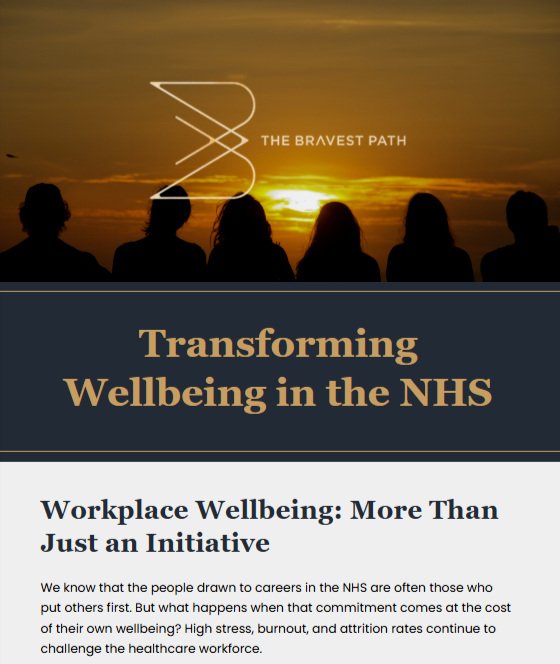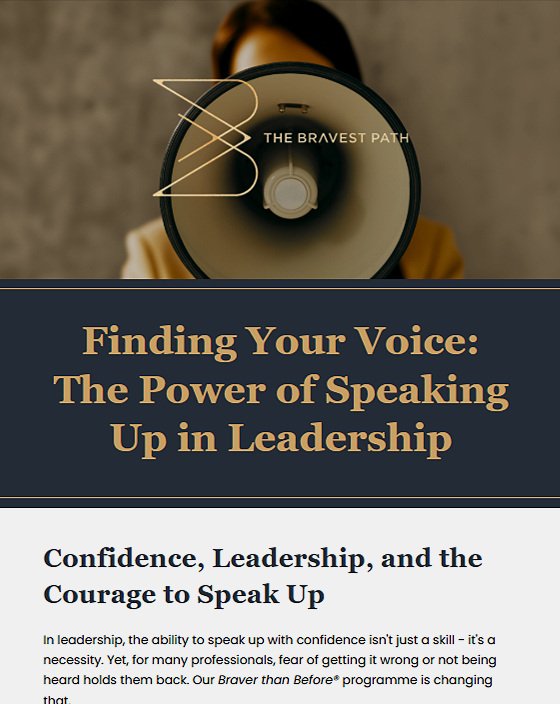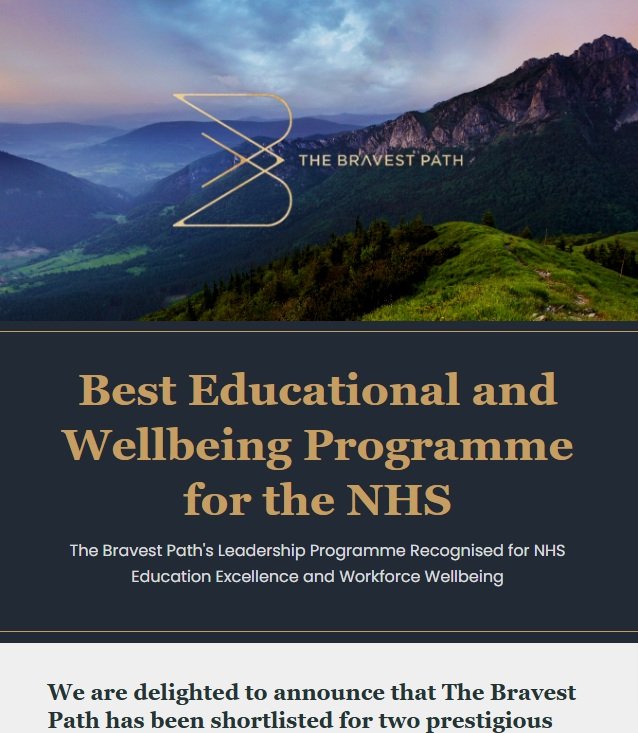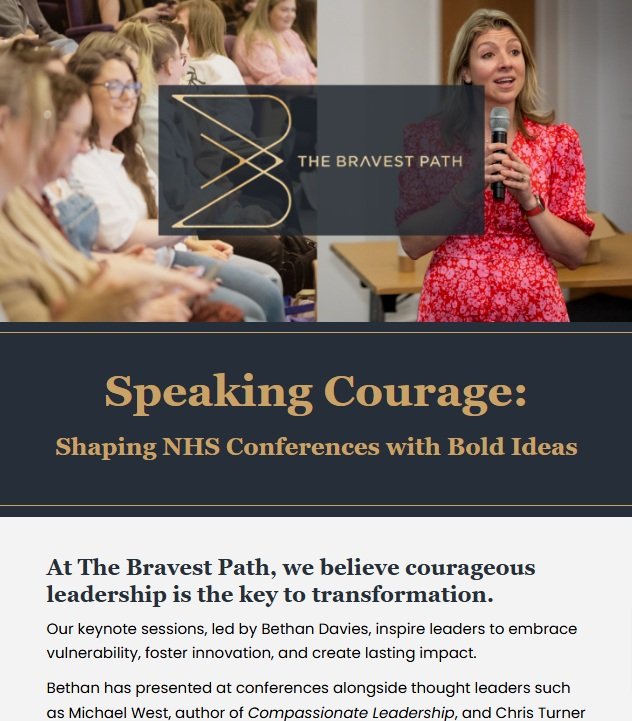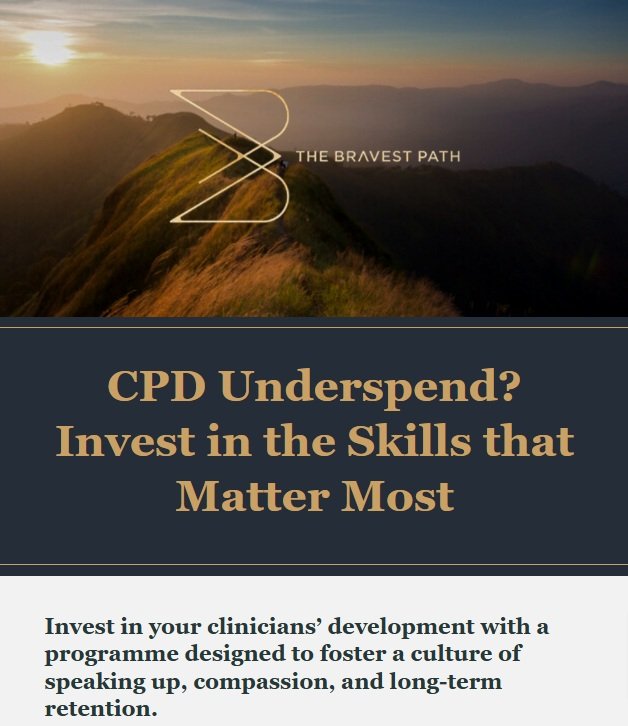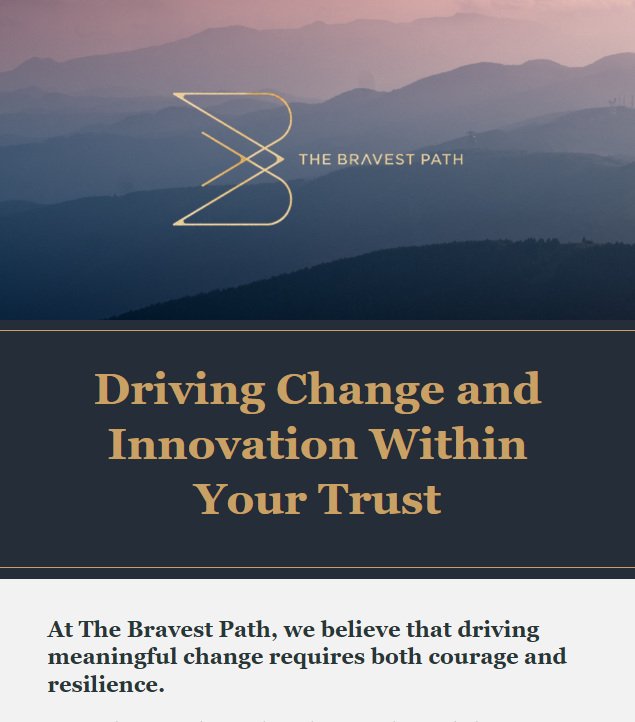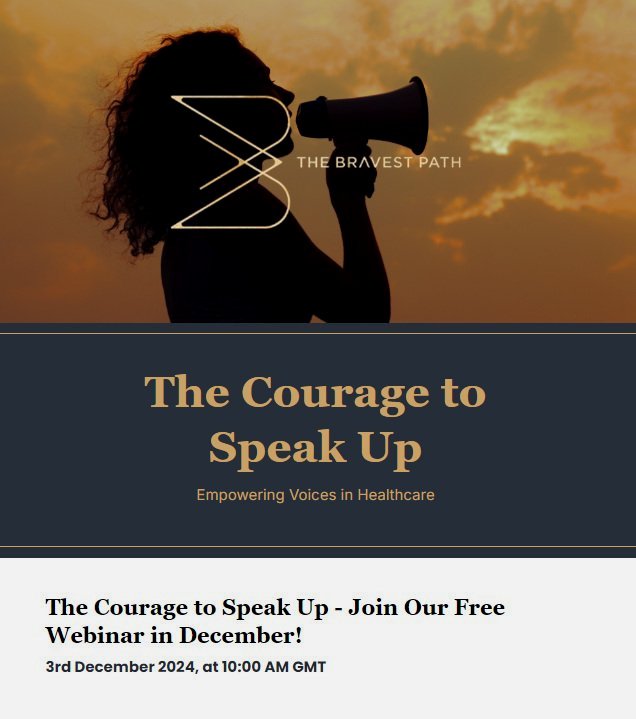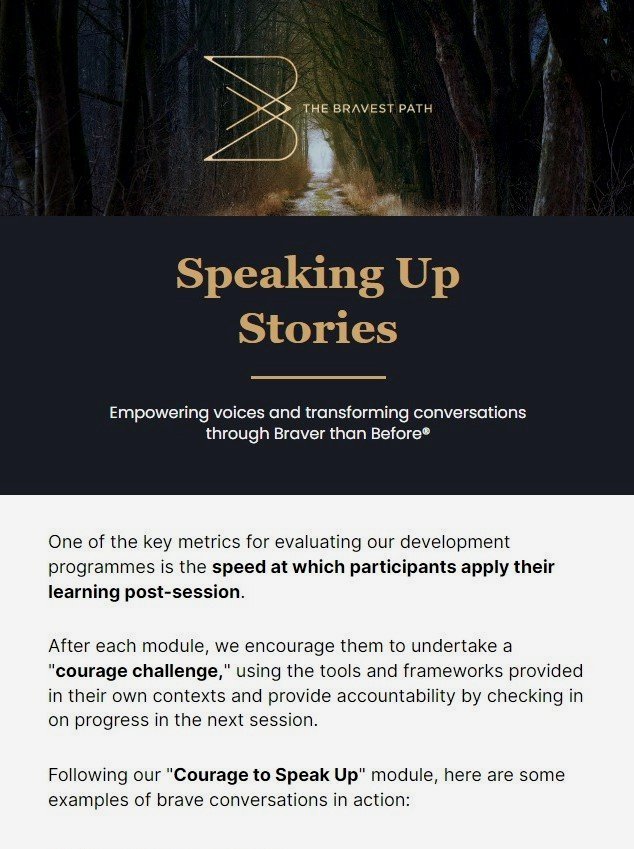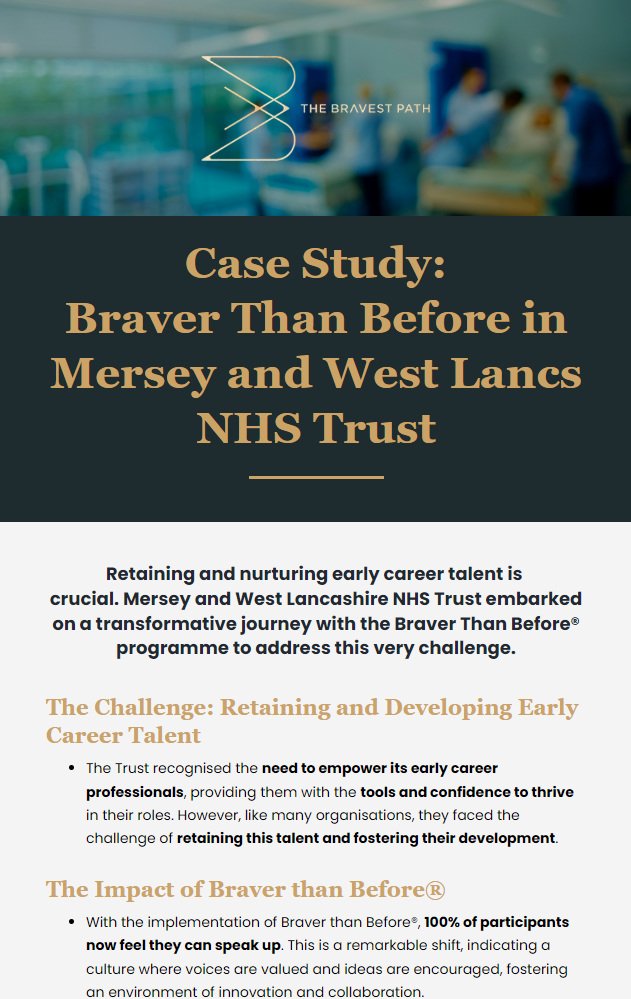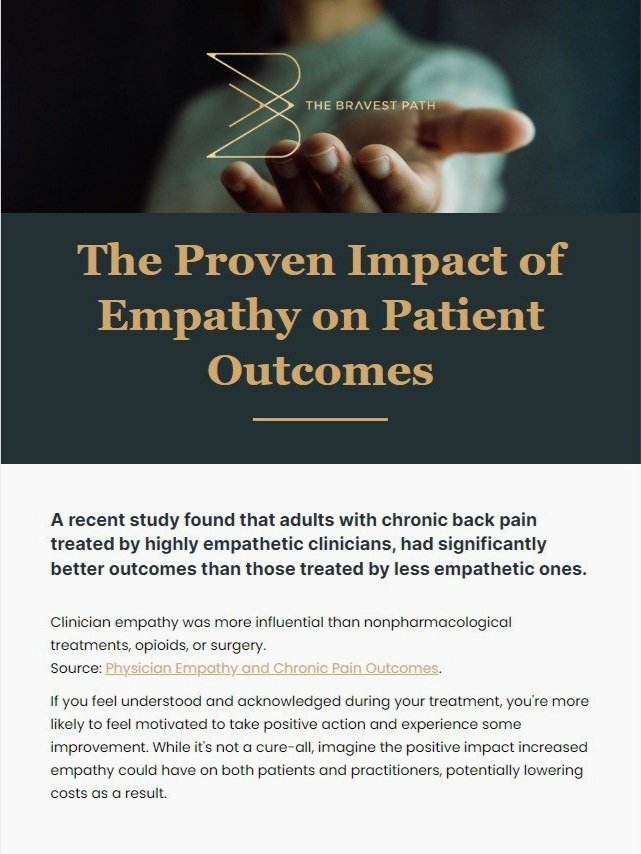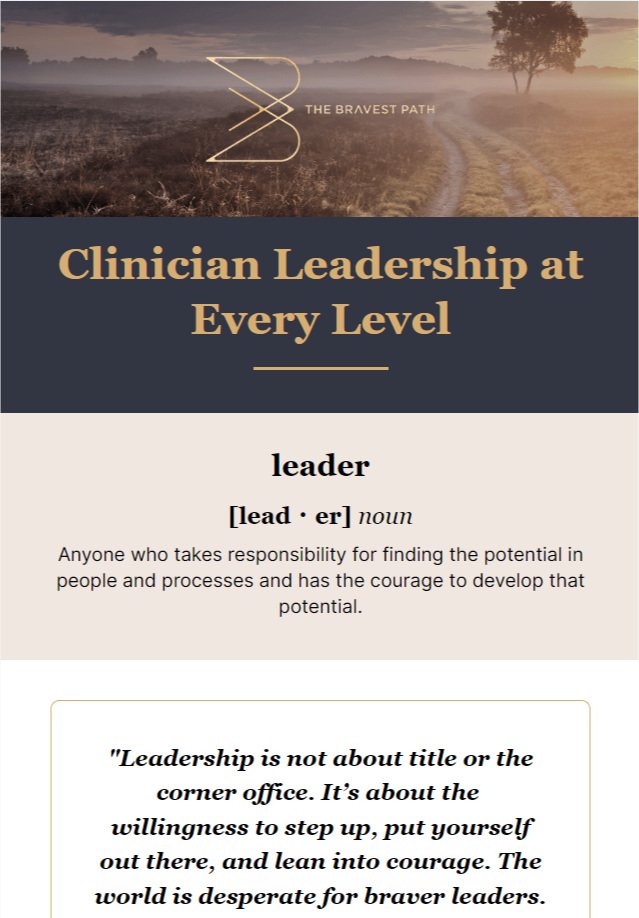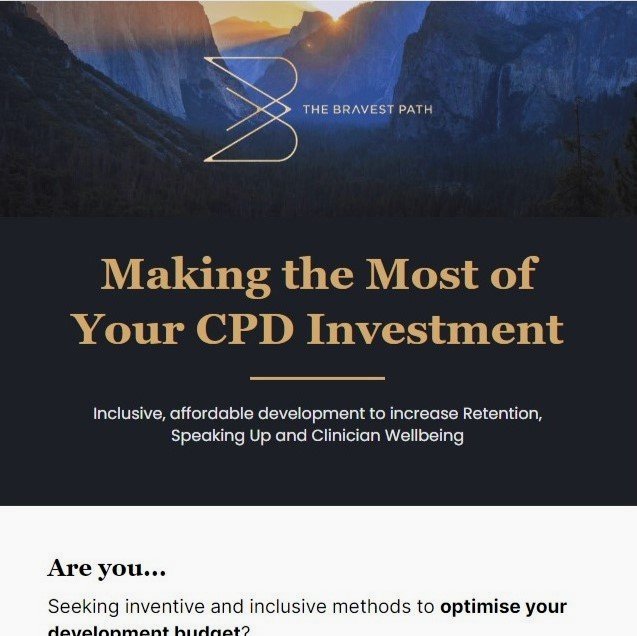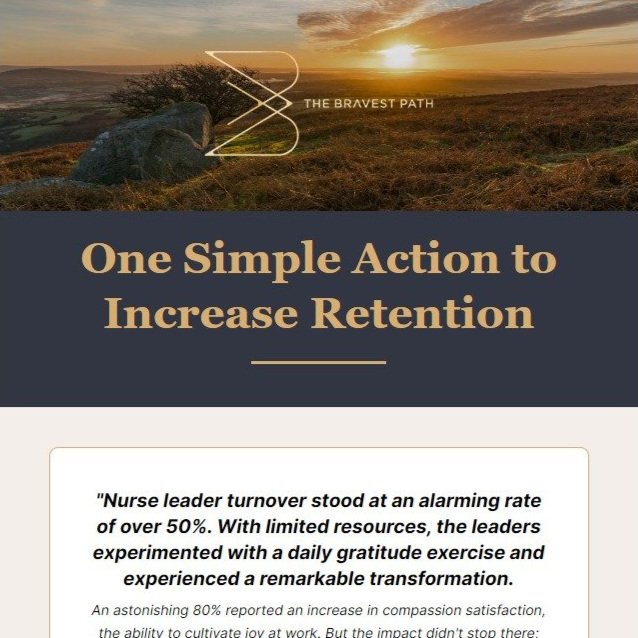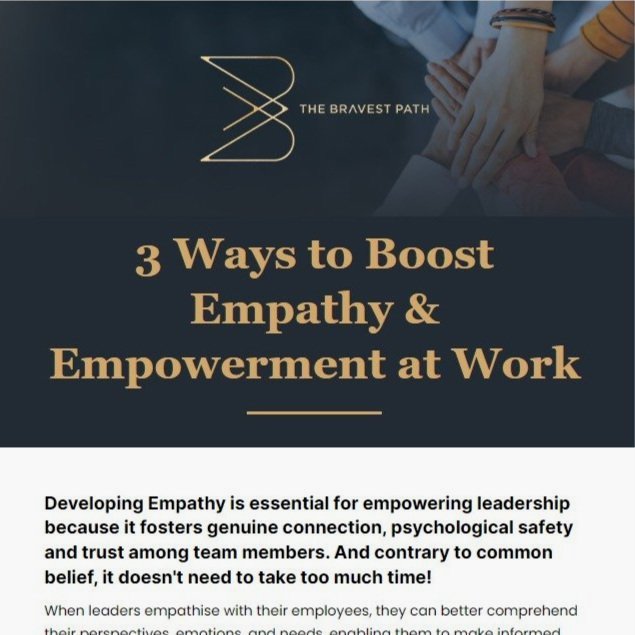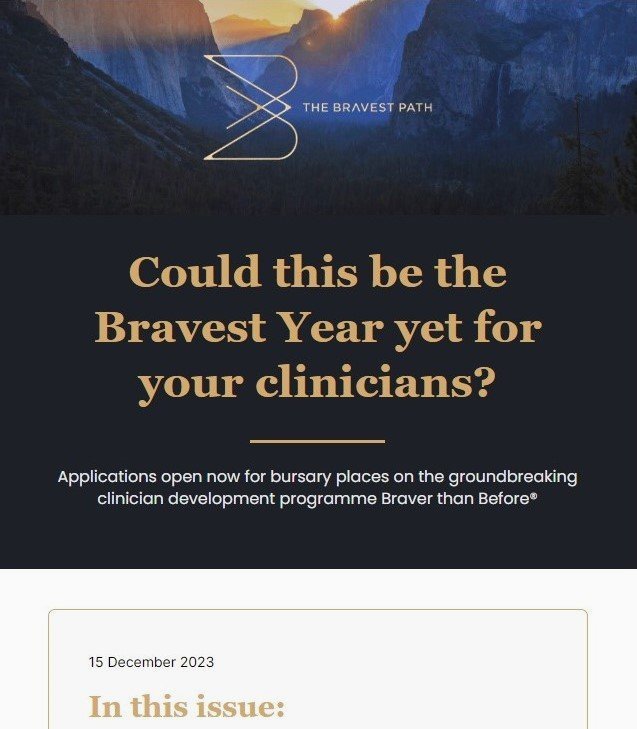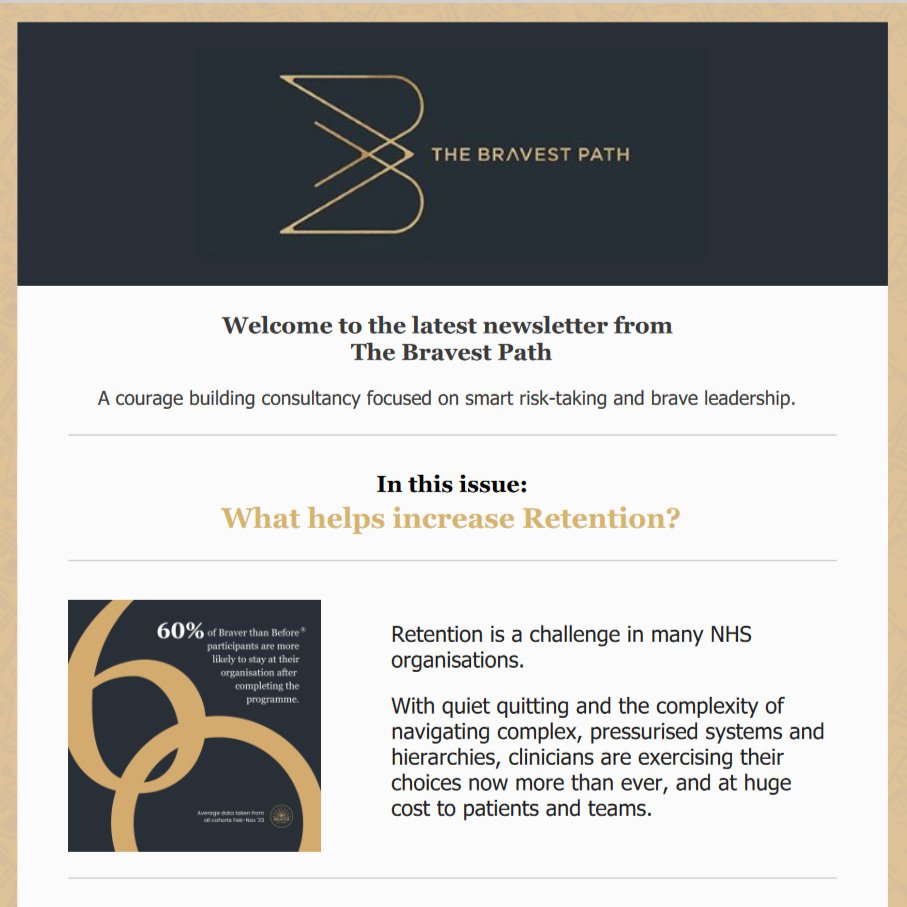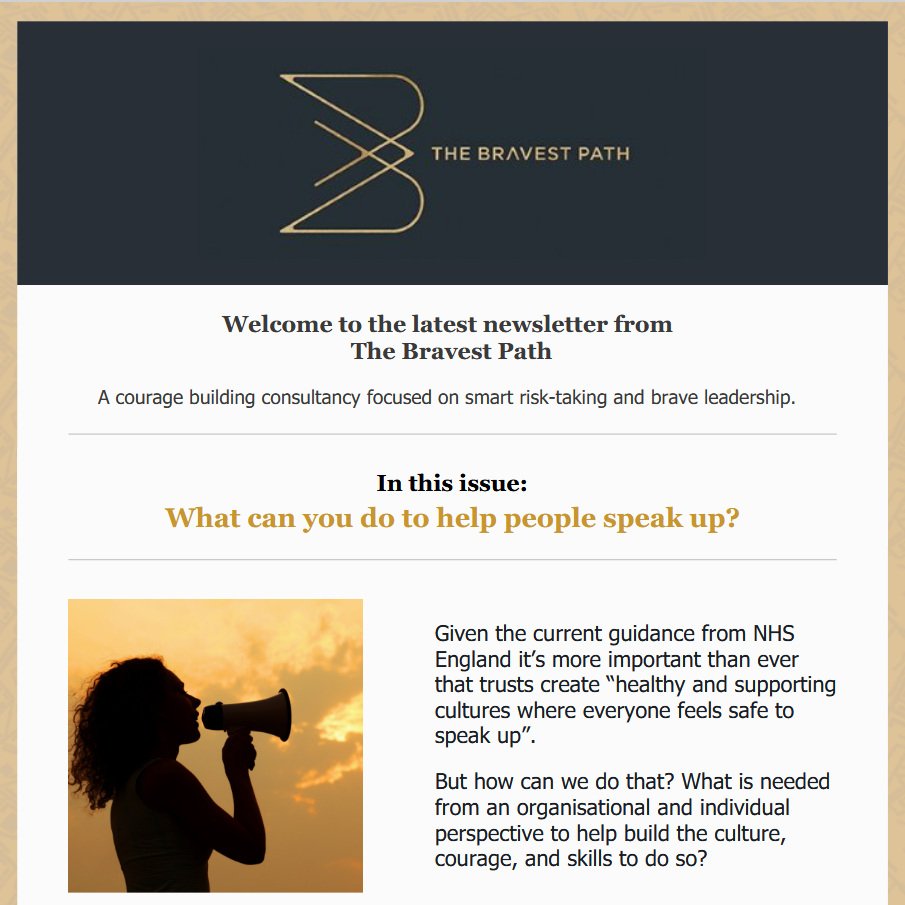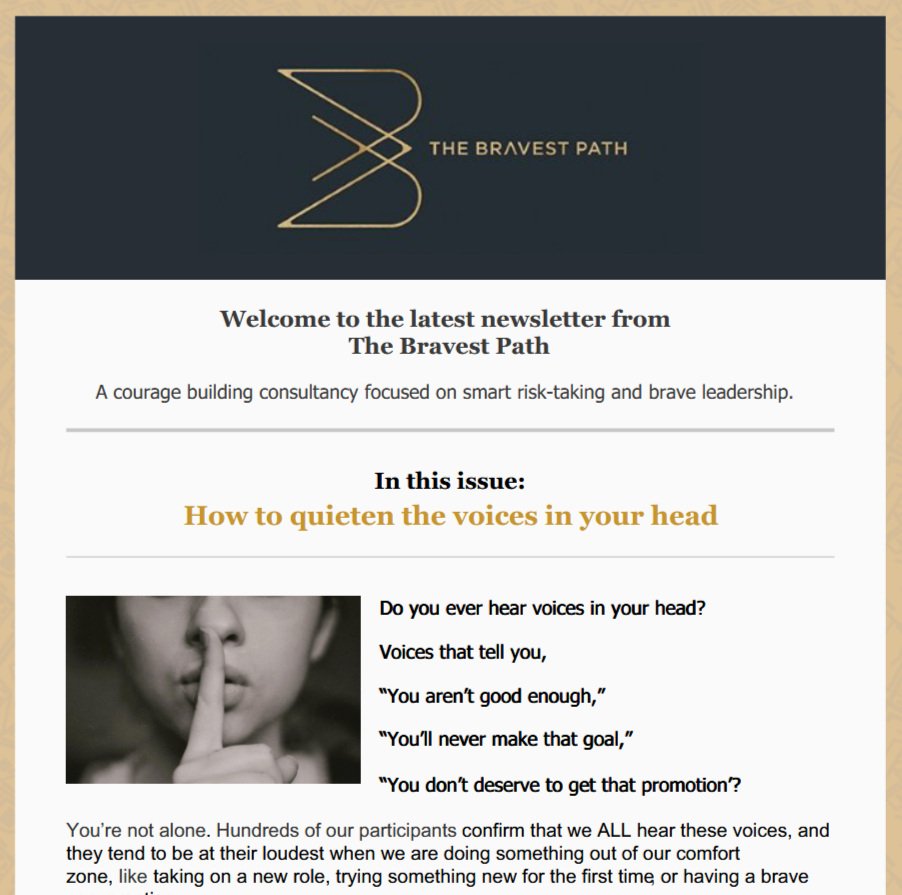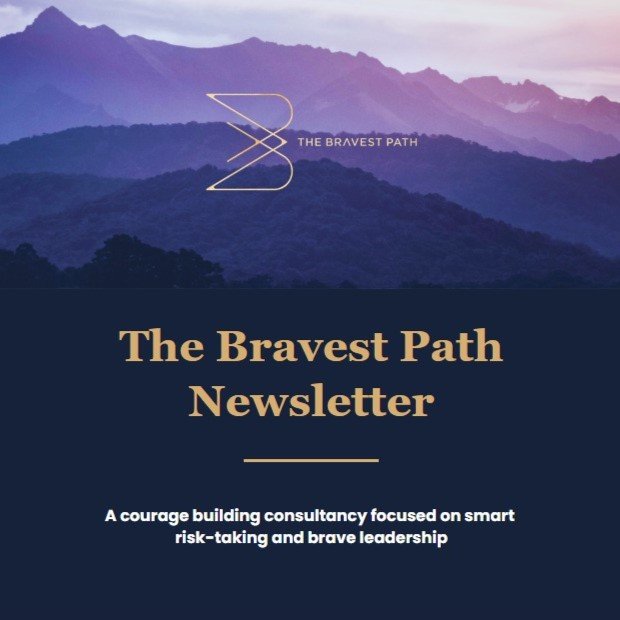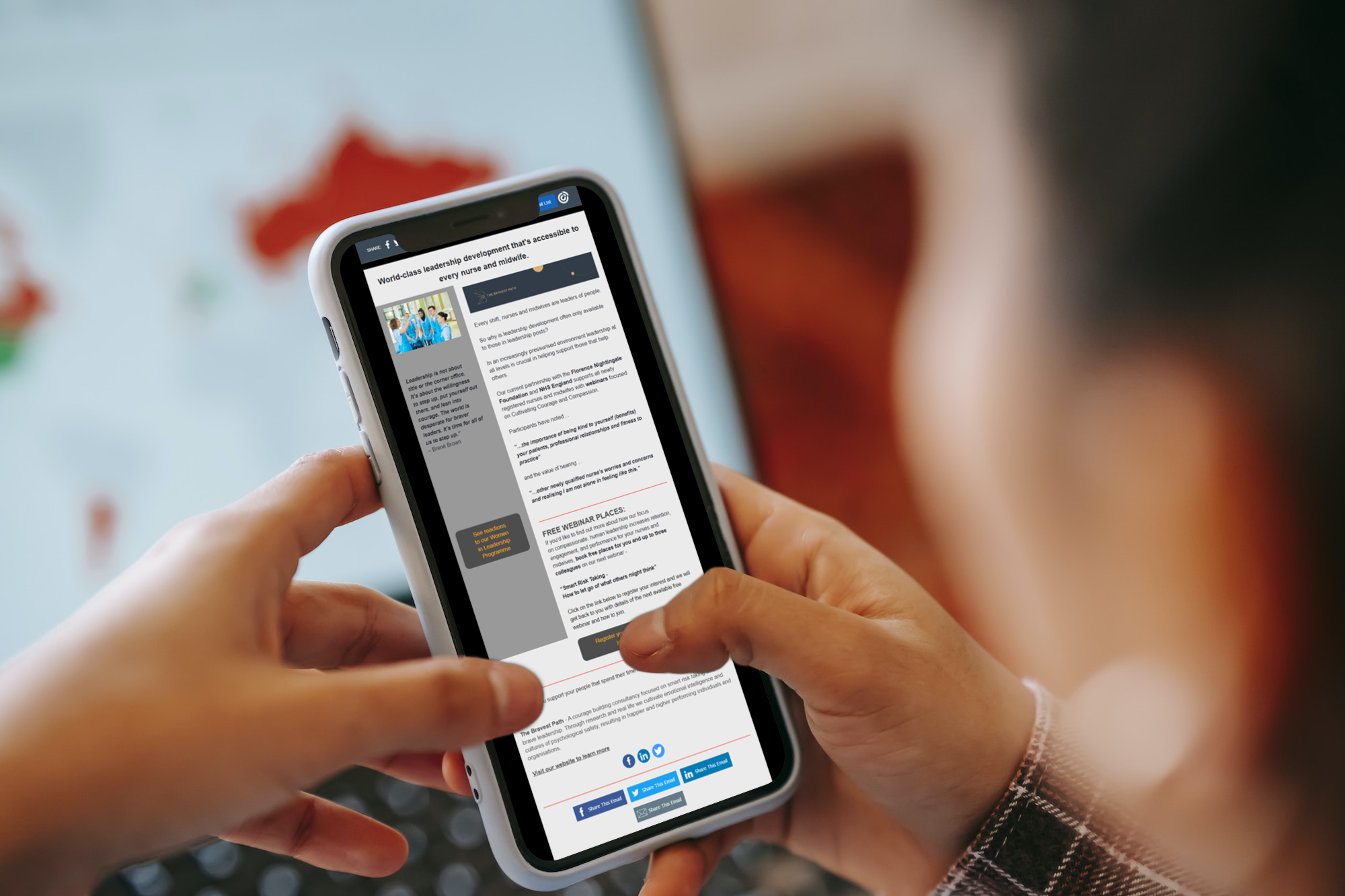
Newsletter archive
Browse through the latest newsletter editions from The Bravest Path and stay up to date about programmes, events, articles and publications.
Braver than Before® wins national recognition for transforming NHS wellbeing—discover what makes this courageous leadership programme award-winning.
Discover two free webinars designed to help senior NHS leaders overcome perfectionism, prioritise self-care, and lead with greater courage and compassion.
Learn how Braver than Before® is redefining wellbeing in the NHS—helping staff build confidence, reduce burnout, and lead with renewed energy and purpose.
Discover how healthcare leaders are finding the courage to speak up, transforming team culture and confidence through the Braver than Before® programme.
Practical strategies to maintain resilience during the challenging winter months, including boundary-setting tools, leadership insights, and free resources to support your wellbeing.
Discover how The Bravest Path’s award-nominated leadership programme is transforming NHS education and wellbeing with courage, compassion, and measurable results.
Explore how bold ideas and courageous leadership are transforming NHS conferences. This edition highlights how compassionate and innovative leadership can make a real impact in healthcare.
Learn how to maximise your team's potential and foster a culture of courageous leadership.
Discover how our Braver than Before® programme is empowering clinicians and staff across the NHS to take smart risks, recover from failures, and persevere even when the initial response is “no”.
Sign up for our free event designed to help clinicians and staff across the NHS overcome the barriers that often prevent open and accountable communication.
Whether you're trying to protect your time, energy, or mental well-being, this article series on ‘The Art of Saying No’ will guide you through how to set boundaries with confidence and clarity.
Learn about proven strategies to build trust and boost performance in your organisation.
Discover how our Braver than Before® programme is empowering voices and transforming conversations in various healthcare settings.
Discover how Mersey and West Lancashire NHS Trust's journey with Braver than Before® highlights the power of investing in early career talent.
Discover how empathy from clinicians is making a significant difference in patient care outcomes, particularly for those managing chronic conditions.
Discover Ajina's inspiring journey from self-doubt to confident leadership in the healthcare sector, and learn how our Braver Than Before® programme could ignite your potential to lead bravely and transform lives.
Learn about a 4 month virtual programme that promises groundbreaking development at a cost lower than your annual CPD budget per person, revolutionising retention and communication strategies.
Discover one simple action which can have a very powerful, positive impact on staff retention.
Developing empathy is essential for empowering leadership. We reveal 3 ways to boost empathy and empowerment in the workplace.
Find your voice, speak your truth. Learn how Braver Than Before® equips clinicians with the skills to speak up with clarity and compassion.
Discover how to reduce burnout, improve team collaboration, and increase patient safety.
Learn more about the inclusive, affordable development which increases retention, speaking up and clinician wellbeing.
Applications open now for bursary places on the groundbreaking clinician development programme Braver than Before®.
In the face of quiet quitting and the pressures of healthcare environments, clinicians frequently depart, affecting both patient care and team cohesion. How might we boost retention and ensure their success?
How can NHS Trusts create “healthy and supporting cultures where everyone feels safe to speak up”?
Do you ever hear voices in your head? Our inner critic’s or saboteur’s role is to keep us safe, but what it tells us is rarely accurate! Read about effective strategies for quietening your inner critic.
Learn how senior leaders from GOSH engaged in our courage-building programme to develop the skills required to practice greater empathy, lean into difficult conversations, practice greater self-compassion and to take more smart risks.
On healthcare's frontline, NHS staff regularly face scenarios potentially causing moral injury—a profound unease stemming from actions, or lack thereof, clashing with their values. Explore three tactics to alleviate this moral distress.
Retention is a major ongoing concern in the NHS. What is within your power right now to action and reduce your retention risk?
Courage plays a pivotal role in the growth of any individual, but it holds particular significance for women due to the societal and cultural expectations they often navigate.
